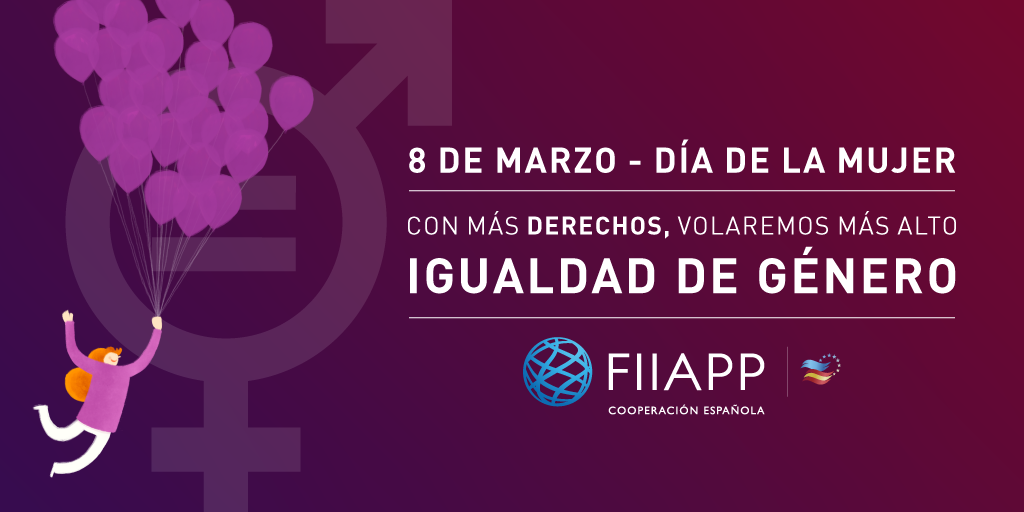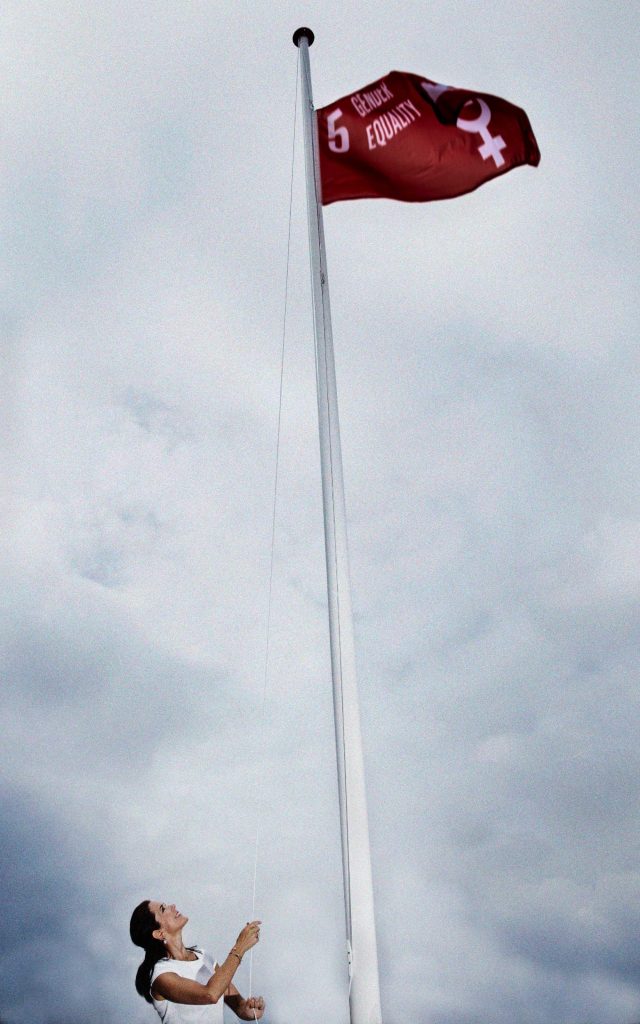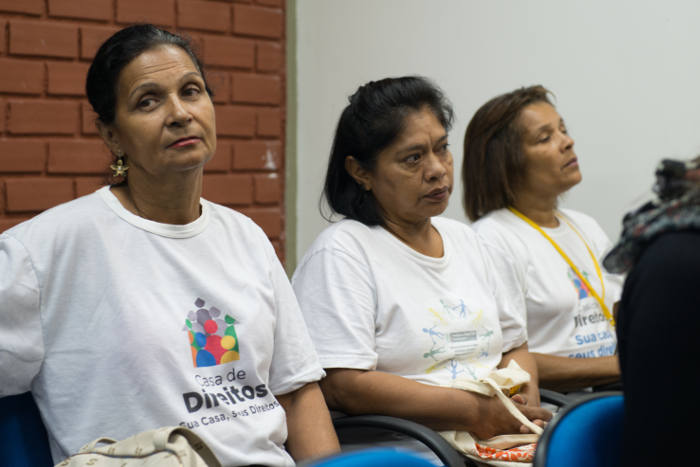-
08 March 2018
Category : Reportage
Cooperation for universal equality
Agenda 2030 counts on cooperation as a tool for advancing the gender equality that is being publicly demanded

“On International Women’s Day, we must commit ourselves to doing everything possible to overcome entrenched prejudices, support participation and activism, and promote gender equality and the empowerment of women”. These are the words of António Guterres, Secretary General of the United Nations, on International Women’s Day. Another 8 March for reflecting on what has been achieved and what remains to be done in terms of equality.
In 1995, almost 200 governments signed a historic road map in Beijing for achieving equal women’s rights. Two decades later, movements in favour of that equality continue to fill the streets and social networks throughout the world. In the face of this joint and global progress, international cooperation can be a key tool to achieving this equality.
Mar Merita, a technician specialising in gender with the EUROsociAL+ programme – which is funded by the European Commission and managed by FIIAPP – affirms how much innovation has taken place regarding the role of women in the Agenda 2030 framework for cooperation.
From ensuring that children have an equitable and high quality education, through ending all forms of discrimination and violence against women and girls throughout the world, to making equality one of the Sustainable Development Goals (SDG) established by several world leaders for a better world in 2030.
Equality in the EU
Gender equality is also one of the founding values of the European Union, which closely follows these development objectives. It also analyses progress towards these objectives through a periodic study.
The latest one (Sustainable Development in the European Union, 2017) provides data on four specific areas that serve as indicators when evaluating the goal of equality: gender violence, access to education, employment and positions of responsibility.

Gender violence is a reality in the EU in 2012. Where one in three women say they have experienced physical or sexual violence since they were 15 years old. This problem is the cause and consequence of inequality, and the fight against it begins the moment children gain access to education.
However, the fact that men drop out of school earlier and women are more successful in this area is not reflected in the employment rate of recent graduates, which is higher for men. In addition, the proportion of men of working age in employment exceeds that of working women by 11.6%.
Employment is one of the areas that is most linked to gender roles, family responsibilities and traditions. And it is reflected in the wage gap: in 2015, according to the same study, women earned 16.3% less per hour than men. The same difference as 5 years ago.
Progress has a cost in what Mar calls the “third generation of rights”, which would include this difference in wages that continues to be significant in most countries. According to the expert from EUROsociAL+, despite the progress in the recognition of political rights, there is still work to be done regarding social, cultural and economic rights; through which that “real equality” would be achieved.
The distribution of political positions and positions of responsibility also reflects inequality, since women do not usually have as much representation as men in decision-making processes. While the proportion of seats held by women in national parliaments has increased since 2003, women still held less than one third (28.9%) of these seats in 2017.
Cooperation as a tool
Many of these issues, such as the wage gap and sexual harassment, are the focus of current events. These have included public denunciations, with a strong international impact, which nevertheless need “processes for dealing with these problems”.
Dominique de Suremain, coordinator of the gender equity policy area for the EUROsociAL+ programme, believes she sees “less visible work for change” when these demands materialise and are reflected in the system.

This is where cooperation comes into play, it has an essential role in the implementation of public policies that take these demands into account. It is important, according to Dominique, “to introduce that concern into the design of the projects” from the outset. It is a cross-cutting issue that must not only be applied in social projects, but it is also relevant for all the themes.
An example would be the gender focus workshop organised by ARAP Ghana – an anti-corruption project managed by FIIAPP – or the inclusion of this perspective in the activities of Euroclima+. In the end, inequality is inherent in the society in which it occurs and it influences the problems that society addresses.
However, this approach is often insufficient to achieve real equality. We must go beyond the diagnosis, the indicators, to quantify how many women have benefited: “We must take advantage of cooperation projects in order to play a proactive role,” according to Dominique.
Perhaps for this reason, EUROsociAL+ is one of the first programmes to create an exclusive thematic area to address this problem. A strong gender component or axis that has direct actions and a team of people exclusively dedicated to it.
Cooperation is based on an exchange of experiences, which is also important for Mar Merita: “you can fight inequality by promoting examples and good practices that arise in countries”, by learning from each other.
“Equality is a universal cause” and a realistic objective that, within the framework of the projects, needs public policies in order to make practical progress. Although in the end what is really important, according to the expert, is to believe in it.
Listen to the programme dedicated to International Women’s Day on our space on Spanish National Radio
The views and opinions expressed in this blog are the sole responsibility of the person who write them.







